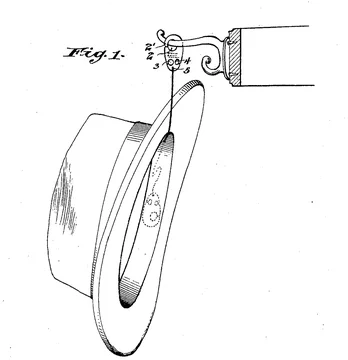
In my experience, parties in patent actions in the District of Delaware (and elsewhere) routinely drop claims in the lead up to trial. "Dropping claims" includes withdrawing asserted claims (e.g. "Claim 1"), whole asserted patents (e.g., "the '123 patent"), infringement contentions (e.g., "direct infringement" or "infringement by product A"), and other claims (including non-patent claims).
Most often, in practice, this is accomplished via an e-mail to the other side or, if the parties want something on the docket, by stipulation. I don't know of a case where the Court here insisted that a plaintiff not drop claims (of course, a defendant may also have counterclaims).
Are the Claims Withdrawn with Prejudice?
But parties rarely have time to really consider whether those claims are dropped with prejudice or not—meaning, can the plaintiff later bring another suit re-alleging those claims?
We've covered that before that when a party the Court forces a party to drop claims, it has suggested that they may bring those back in a new lawsuit—a potentially terrifying prospect for a patent defendant.
But when parties voluntarily drop claims, what happens then? We got some insight into that from Judge Andrews today, who suggested that the key question in whether the claims were dropped with prejudice is whether they were poised for final disposition at the time they were dropped:
In the normal course of litigation, parties narrow claims and defenses as trial approaches. I have previously found that claims dropped on the eve of trial are dropped with prejudice. . . . In this case, Shure dropped its claims while ClearOne's summary judgment and Daubert motions were pending. . . . Shure suggests that a different outcome is appropriate here because the claims were dropped over six weeks before trial, not on " the eve of trial." . . . That the claims were not dropped literally hours before trial misses the point. . . . These claims were poised for a final disposition. Allowing Shure to file a new lawsuit tomorrow asserting these very claims would lead to excessive, duplicative expenses. Shure brought its business claims more than two years before dropping them. . . . The parties litigated the claims extensively in this forum. Pretrial exchanges were ongoing, and a dispositive motion was pending. . . . Shure informally dropped its business tort claims less than two months before trial without much explanation and failed to formalize that decision. . . . The counts are WITHDRAWN WITH PREJUDICE.
The last line of the above suggests that the Court might want something more than and informal dropping of claims—although it's not stated what the preferred method would be (a stipulation, or an unopposed motion?).
Plaintiff suggested that Rule 41, which allows for voluntary dismissal, applies only to dismissal of an action rather than claims. But the Court also recognized that, regardless of the caselaw, dismissals of individual claims are routine:
Whatever the caselaw may suggest, my experience is that parties routinely agree to "dismiss" claims and I just as routinely "so order" the agreement. I expect all the judges of this Court do that.
He also recognized that the issue may be somewhat moot:
[W]hether I hold the claims are dismissed or withdrawn with prejudice, I have a hard time thinking that [plaintiff] Shure could ever actually refile the claims without them being barred by claim preclusion principles.
Nonetheless, he got around the Rule 41 issue by interpreting the request to withdraw the claims as a request to amend the complaint, and granting it:
The alternative [to applying Rule 41] is to treat the dropping of a claim as an amendment under Rule 15 of the Federal Rules of Civil Procedure. . . . Under Rule 15, I have "extensive discretion to decide whether to grant leave to amend after the time for amendment as a matter of course has passed." Wright & Miller, Federal Practice & Procedure Civil 3d, § 1486 (2010). I therefore construe Shure's letter withdrawing its business tort claims as a request to amend its complaint. See Gronholz v. Sears, Roebuck & Co., 836 F.2d 515, 518 (Fed. Cir. 1987) ("Gronholz's dismissal of the patent claim constituted an amendment of his complaint." ). I will so treat the motion.
The Court then granted the motion, and held that plaintiff's claims are withdrawn with prejudice. Good to know!
If you enjoyed this post, consider subscribing to receive free e-mail updates about new posts.




